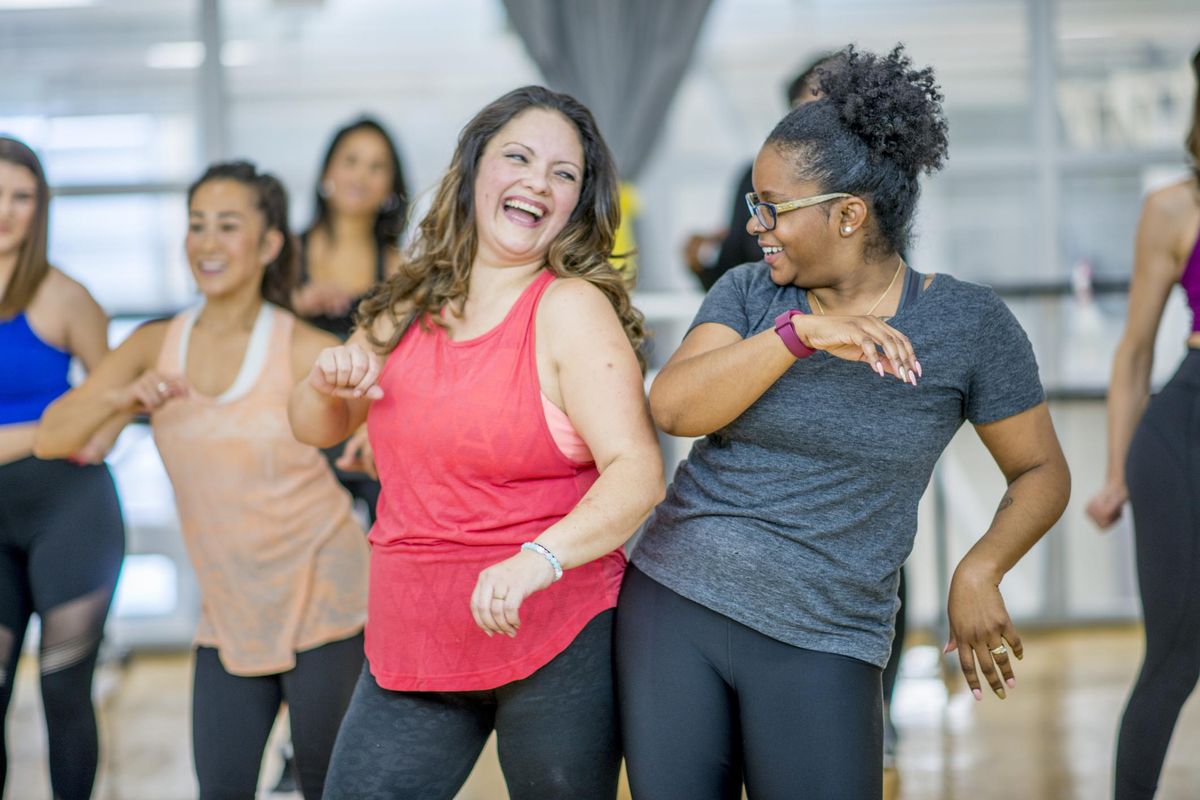Watch the videoof HealthyWomen CEO Beth Battaglino, RN and Dr. Gayatri Devi of Park Avenue Neurology discussing brain health on a recent Instagram Live.
Last night, I watched a YouTube video about a woman who remembers every single day of her life in perfect detail. I was amazed and more than a little jealous. I can barely remember what I had for breakfast this morning! On the other hand, I manage to mentally juggle the schedules of everyone in my household (including the dog) while still remembering the lyrics to Bohemian Rhapsody, so I guess my 43-year-old brain deserves some credit.
Of course, our brains are responsible for much more than just memories. They are the control centers of our bodies, simultaneously coordinating every thought, feeling, behavior, movement and sensation. Once thought to be hard-wired after early childhood, the brain actually has a remarkable ability to change and heal itself. Factors like age, hormonal changes, diet and stress can all affect your brain.
"Brain health is a function of general health and mental activity," said Dr. Barbara Jobst, professor of neurology at the Geisel School of Medicine at Dartmouth College. She added that understanding how the brain works at different stages of life can help you recognize changes while taking steps to keep your brain healthy along the way.
Brain health in your 30s and 40s: Reaching your cognitive peak, beginning to decline
Your brain may be at its most powerful during your 30s. Many people will reach their cognitive peak around age 35, according to a study that evaluated the performance of professional chess players over the past 125 years.
While you might be sharpest at 35, this is also around the age when the brain begins to get smaller, losing volume due to the cell death that comes naturally with aging. As you move into your 40s, it may get harder for you to memorize new information, like the name of the co-worker you met last week.
Brain health in your 50s: Menopause may make your brain feel foggy
Many women hit a milestone in their 50s that can significantly impact brain health — menopause. Fluctuating hormone levels may cause menopausal women to experience neurological symptoms like brain fog that can make day-to-day life difficult.
Hormonal shifts during menopause can also increase the risk of brain changes associated with Alzheimer's disease. Women make up about 67% of Alzheimer's patients in the United States.
"As women age, their global cognition declines more quickly when compared to men," said Dr. Rudy Tanzi, professor of neurology at Harvard Medical School and co-director of the McCance Center for Brain Health. "We don't understand all the reasons women are more vulnerable, but we do know that inflammation in the brain, neuroinflammation, plays a key role."
Brain health in your 60s and beyond: Age-related changes become more obvious
Although an estimated 5.8 million Americans ages 65 and older have Alzheimer's, the disease (along with other types of dementia) isn't a normal part of aging. Cognitive decline, however, is. Women in their 60s may find that their ability to recall names and find words is slower or that they have a harder time concentrating or multitasking.
But as any wise elder will tell you, age can also bring positive changes in brain health. Older people tend to have bigger vocabularies and a depth of knowledge that comes from a lifetime of accumulated experience. And research suggests older people often prefer paying attention to positive things, a phenomenon called "the positivity effect." This shift away from the negative bias of youth allows for better emotional regulation.
Warning signs to watch for
It can be hard to separate normal age-related brain changes from something more serious. Is your inability to find your keys aging or dementia? Jobst says it's important for individuals to know their own minds, so to speak. "Everybody is his or her own best judge of brain health."
That said, there are universal warning signs to watch for when it comes to brain health. Some of the risk factors for chronic disease in general — smoking, a sedentary lifestyle, high cholesterol, high blood pressure and obesity — also apply to Alzheimer's disease.
Not knowing where you are or how you got there, an inability to solve problems, and forgetting important information may also be red flags. "As we get older, all of us start to have trouble recalling a name or a word. That's normal," Tanzi said. "If you are suddenly feeling like you don't know what you are doing, or you completely forget one task because you were doing another task, that may be cause for concern."
Supporting your brain at every age
The brain's ability to create new cells throughout life means there are actions you can take to keep your brain healthy no matter how old you are. Jobst says the same things that support a healthy body, like exercising regularly and eating a balanced diet, also help maintain brain health.
It's especially important to watch your sugar intake, because it's particularly bad for brain health.
Getting enough sleep is also critical for healthy brain function. "Sleep literally helps you clean your brain out," Tanzi said. He encourages women to "sleep in like a teenager" whenever possible.
What about stimulation? Do you need to download a special "brain training" app to keep yourself sharp? Jobst says it's a matter of staying mentally active. "Mental activity such as reading, learning another language, playing an instrument, and engaging in social activity is helpful to maintain a healthy brain," she said.
Tanzi also emphasizes the importance of socializing for brain health. "Loneliness, meaning that you're alone and you don't like it, increases risk for Alzheimer's by two-fold," he said. "Social engagement is protective for the brain."
No matter what your age, Tanzi believes it's possible to make brain-boosting changes. "It's never too early to take care of our brains."
Resources:
UsAgainstAlzheimer's BrainGuide
- Understanding Menopause: Brain Health, Sleep and the Health ... ›
- You & Your Brain: A HealthyWomen, Prevention & Women's ... ›
- Laughing is good for your mind and your body – here's what the ... ›
- Honoring World Alzheimer's Month: Keeping the Brain Healthy - HealthyWomen ›
- Building Up Your Brain - HealthyWomen ›







